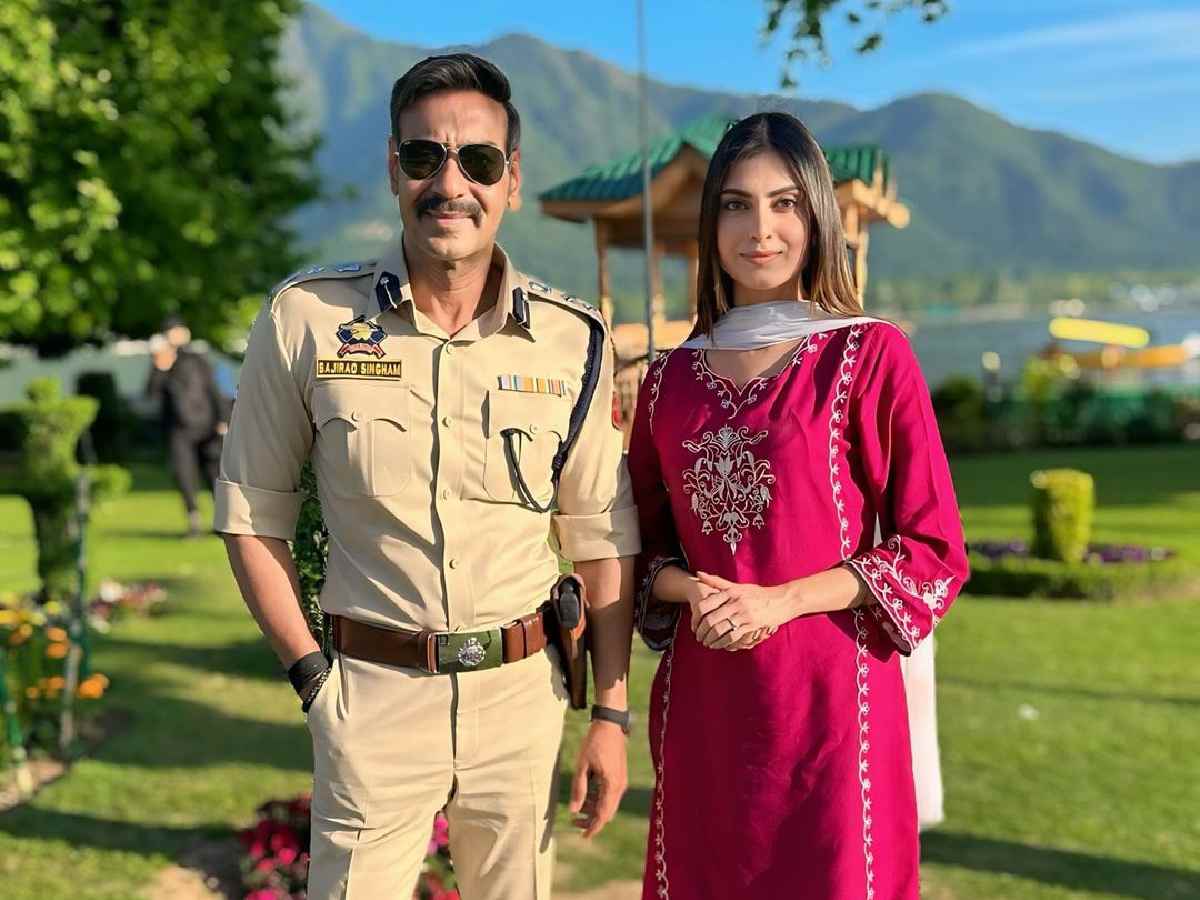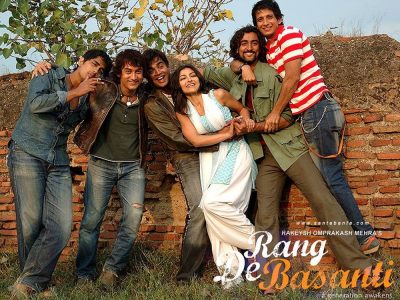Bollywood actor of Kashmiri origin, Farhana Bhat, recently spoke about her experience working with superstar Ajay Devgn in the newly released film Singham Again (2024). Bhat, who played a cameo role alongside the actor, admitted to being nervous at first.
“I was nervous at first about working with Ajay Devgn,” Bhat told Patriot. “I wasn’t sure how things would go, as he is such a big star, and I was also worried about how my shots would turn out.”
Reflecting on her time on set, Bhat recalled shooting at Char Chinari, a picturesque spot in Dal Lake, Srinagar. “I was preparing my lines on set, where Ajay Sir was also present. I was later called for the shot, greeted Ajay Sir and Rohit Shetty, and after a brief conversation with him, it became much easier to work with him.” Bhat described that Devgn took a hands-on approach, even stepping in to inform her about the dialogue schedule instead of leaving it to the Assistant Director. Seeing such humility in a star of his calibre was, as she put it “surreal.” The experience, she added, was one of best moments of her life.
Also read: Anang Desai reflects on Khichdi fame, memories of NSD, and impact of theatre
Bhat also had kind words for Singham Again director Rohit Shetty, describing him as “incredibly energetic and good-looking,” a comment she shared with a smile.
The 25-year-old actress recounted how she got the role. Bhat said she had auditioned for the part about a month before filming but had forgotten about it until the casting agency contacted her just a day before the shoot. The agency informed her that she would be playing a journalist. “I had prepared my own script for the audition, and after performing, I was told I had been selected for the role.”
Since part of the film was shot in Kashmir, Bhat urged filmmakers to explore Kashmiri talent. “There are so many talented artists in the valley. They should be given more opportunities,” she said.
Bhat’s acting journey began with her debut in Sunshine Music Tours and Travels (2016), where she starred alongside Sunny Kaushal. “At that time, I wasn’t serious about my career in films,” she admitted. “In fact, I had not even given auditions before that. Back in 2016, it was quite difficult for a Kashmiri girl to come in front of the camera, but I had an Instagram presence, where I posted my pictures. The filmmakers were looking for a Kashmiri girl, and my online presence helped me land the role.
However, it was her performance in Laila Majnu (2018), directed by Sajid Ali, that truly shaped her career. She played the role of actor Triptii Dimri’s friend. “When I auditioned for Laila Majnu, I knew this was the career I wanted to pursue,” she said. “Initially, I only wanted to act and get paid for my work. But after Laila Majnu, I started receiving many offers, which helped me realise that acting is a long-term commitment.”
Bhat has since appeared in films like Notebook, Rakshak: India’s Braves, Country of Blinds, and many others. She acknowledged the challenges she faced, especially the societal pressures that discouraged young Kashmiri girls from pursuing a career in the film industry. “When I first told my family I wanted to act, they were concerned. They verified everything with the casting team—what the role was, how it would affect me. The pressure from society was also a concern. But after Laila Majnu released, my family saw how acting is an art, and they understood that every profession has its positives and negatives. It’s all about choosing the right path.”
Even today, Bhat faces online trolling and negative comments. “People still criticise me on social media,” she said. “But it doesn’t bother me much. What matters is that my family supports me, and that’s what keeps me going.”
Bhat also briefly explored theatre, which she described as a transformative experience. “Theatre is such a powerful medium. When I started, I was one person, and by the end, I was completely different. It changes you, not just as an actor, but as a person,” she shared.
She also spoke about the rise of OTT platforms, which she believes have revolutionised the entertainment industry. “OTT has brought entertainment right into our homes. It’s given opportunities to many talented people who might not have had a chance in traditional cinema. The best part is that there’s no nepotism in OTT—new faces with talent are being given the spotlight.”
Bhat expressed appreciation for the work of casting agencies, noting their role in identifying the right talent. “Casting agents look at your discipline, your approach to the team, and if you fit the role, they’ll bring you back for future projects. It’s easier to connect with them now because all the information is available online,” she concluded.





